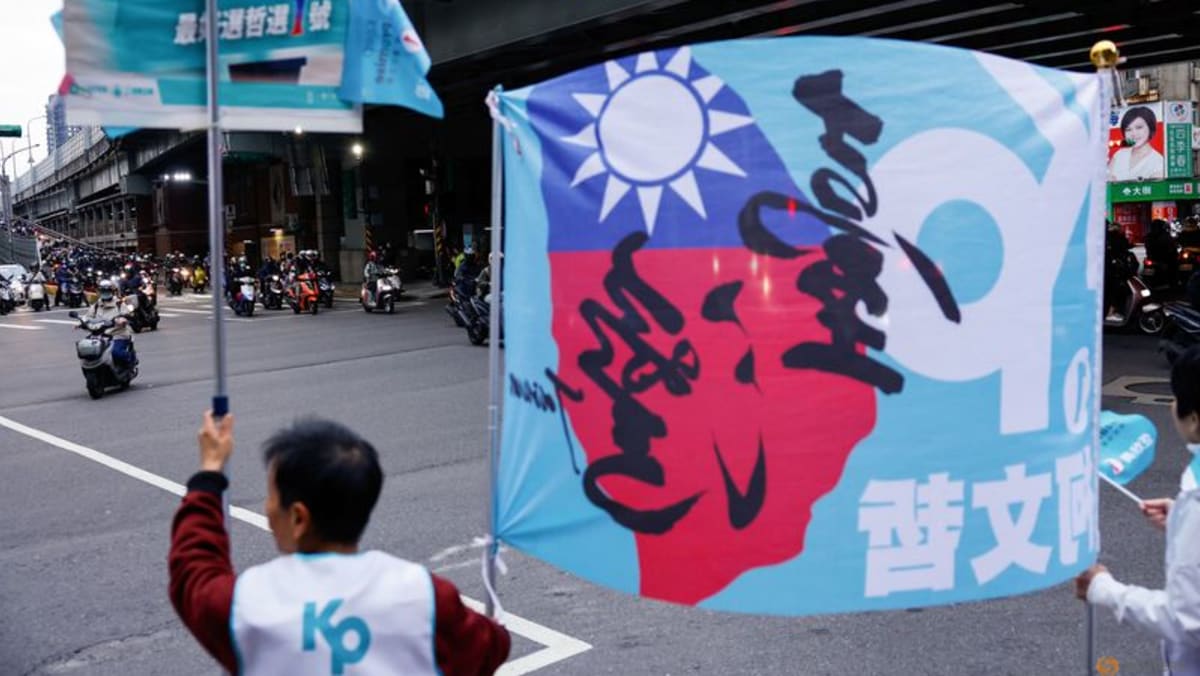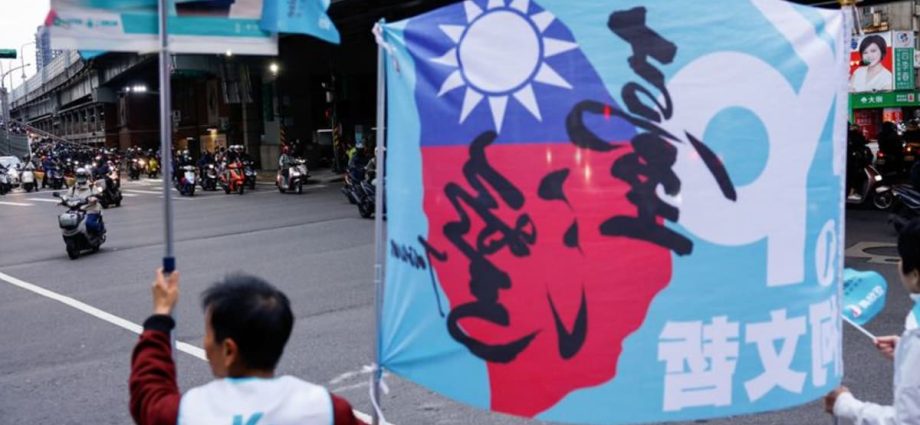
President Tsai Ing-wen is ineligible to seek re-election after serving two straight terms.
The hopefuls have been busy through the 28 days of formal campaigning, staging rallies and taking part in televised debates as they seek to win people’s hearts and minds – and secure their votes.
CNA has been on the ground – here are the key issues that have emerged in this election.
CROSS-STRAIT TENSIONS
The issue has been at the forefront as China steps up military and economic pressure on Taiwan. Beijing has framed the election as a choice between war and peace across the Taiwan Strait, as well as between prosperity and recession.
While China has not publicly stated its preferred candidate, it has clearly signalled who’s not in its favour, calling the DPP’s Lai a “separatist” and “troublemaker”.
Mr Lai was previously outspoken in his support for Taiwan independence – which China sees as a red line – but has since distanced himself from this. He has pledged to prioritise the status quo, saying only Taiwan’s people can decide the island’s future.
Mr Hou of the KMT has portrayed the presidential ballot as a choice between war and peace with China, mirroring Beijing’s warning. He has said he will restart talks with China, starting with lower-level events such as cultural exchanges. Still, he rejects Beijing’s “one country, two systems” model of bringing Taiwan under its control.
As for the TPP’s Dr Ko, how exactly he will conduct cross-strait policy remains unclear. He has touted his party as offering a “middle way” between the DPP and KMT on the matter of China, while offering few details.
We talked to analysts to find out the likely trajectories of cross-strait relations under each of the three men, and the best- and worst-case scenarios for Taiwan depending on who takes office.
SECURITY
Like previous elections, defence has remained a key issue, arguably gaining greater prominence this election cycle as an increasingly assertive China looms large.
In a sign of the times, a Chinese satellite launch triggered alarm in Taiwan just earlier this week after authorities sent out an emergency message notifying the public.
An English-language version announced it as “[Air raid alert], Missile flyover Taiwan airspace, be aware”. The island’s defence ministry later apologised, saying the reference to a missile in the message was inaccurate.
The three presidential candidates have all laid out their planned defence policies should they be elected. A common factor is to uphold defence spending, with the TPP’s Dr Ko going further to suggest raising the budget to 3 per cent of the island’s gross domestic product.
Taiwan will see a record-high overall defence budget of NT$606.8 billion (US$19.1 billion) this year, or about 2.5 per cent of its GDP. This would mark the seventh consecutive on-year increase in the island’s defence spending.
The candidates are also aligned on the extension of military conscription to one year, taking effect this month. It’s a rare consensus in a campaign trail which has seen the hopefuls locking horns on an array of issues.
The move has been met with broad public support. Still, reservations have been expressed over perceived lapses in training and equipment. Questions have also been raised over whether longer military service will translate to stronger national defence.

